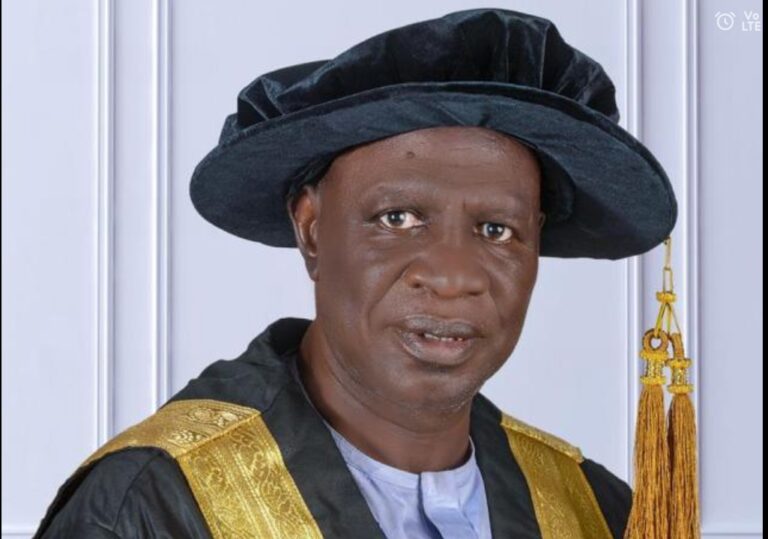The Tinubu Government’s Fuel Price Hike: A Betrayal of Trust and a Call for Resilience. By Chidi Ekeh

The Tinubu Government’s Fuel Price Hike: A Betrayal of Trust and a Call for Resilience



The recent surge in fuel prices, coupled with widespread discontent among Nigerians, has sparked a fierce debate over the policies of President Bola Tinubu’s administration. The Nigeria Labour Congress (NLC) has accused the government of betraying its commitment to the people, particularly in light of the earlier agreement on the national minimum wage. This situation has not only intensified economic hardships but also exposed the insensitivity and cruelty of the current administration.
Betrayal of Trust
The NLC’s sense of betrayal stems from the government’s failure to uphold its end of the bargain. During negotiations earlier this year, the Tinubu administration presented the NLC with two options: a higher minimum wage of ₦250,000 accompanied by a significant increase in fuel prices or a more modest wage of ₦70,000 with the promise that fuel prices would remain stable. The labor union, prioritizing the immediate well-being of Nigerians, opted for the latter. Yet, within a month of this agreement, the government raised the pump price of petrol, shattering the trust that had been so tentatively placed in it.

NLC President Joe Ajaero has voiced the union’s frustration, describing the government’s actions as “traumatic and nightmarish.” The union’s stance is clear: the government has not only reneged on its promise but has done so in a manner that suggests a deliberate attempt to undermine the labor movement and the Nigerian populace. The situation has been exacerbated by the fact that the new minimum wage has yet to be implemented, leaving workers to bear the brunt of escalating costs without any corresponding increase in their earnings.
Economic Hardships and Public Outcry
The effects of the fuel price hike have been immediate and severe. Across the nation, Nigerians have faced unprecedented increases in the cost of living, with fuel prices soaring to as much as ₦900 per liter in some areas. The situation has left many commuters stranded, unable to afford the skyrocketing transportation costs. In Abuja, residents expressed their frustration and anger, accusing President Tinubu of being indifferent to their plight. This sentiment was echoed by Bernard Ezeokafor, who lamented the lack of available transportation and the government’s apparent disregard for the suffering of ordinary Nigerians.
The economic strain extends beyond individuals and households, impacting businesses as well. Small and medium enterprises, already struggling with the high cost of doing business in Nigeria, are now facing an existential threat due to the fuel price hike. This development is particularly troubling given the critical role that SMEs play in the Nigerian economy, providing employment and contributing to GDP growth.
The Broader Implications
The fuel price increase is not an isolated event but rather part of a broader pattern of policies that have disproportionately affected the poor and vulnerable. The Tinubu administration’s approach to economic reform has been characterized by a commitment to market-driven policies, often at the expense of social welfare. The removal of fuel subsidies, which has been a cornerstone of this approach, was supposed to free up resources for investment in infrastructure and social programs. However, the reality has been quite different, with the benefits of these policies failing to materialize for the vast majority of Nigerians.
Moreover, the government’s handling of the situation has raised serious questions about its commitment to democratic principles and the rule of law. The crackdown on protests and the detention of individuals who participated in demonstrations against the fuel price hike have further eroded trust in the administration. The NLC has been particularly vocal in condemning these actions, warning that the government’s attempts to stifle dissent will only deepen the crisis.
A Call for Resilience and Alternative Solutions
In the face of these challenges, it is imperative for Nigerians to explore alternative means of transportation and energy. The current crisis presents an opportunity to rethink the country’s reliance on petrol and to invest in more sustainable and affordable options. Public transportation systems, which have long been underfunded and poorly managed, need to be revitalized and expanded. Additionally, there should be a renewed focus on developing renewable energy sources, such as solar and wind, which could provide a more stable and cost-effective solution to Nigeria’s energy needs.
The Tinubu administration must also be held accountable for its actions. The NLC’s demand for a reversal of the fuel price hike is not just a call for economic relief but a broader plea for justice and good governance. Nigerians have the right to protest and to hold their leaders to account, and any attempts to curtail these rights must be vigorously opposed.
In conclusion, the recent fuel price hike has exposed the deep flaws in the Tinubu administration’s approach to governance. The betrayal of trust, the economic hardships imposed on the populace, and the erosion of democratic freedoms are all symptoms of a government that has lost touch with the needs and aspirations of its people. However, this crisis also presents an opportunity for Nigerians to come together, to demand better from their leaders, and to chart a new course towards a more just and equitable society.
Chidi Ekeh a public affairs analyst writes from Abuja FCT Nigeria



